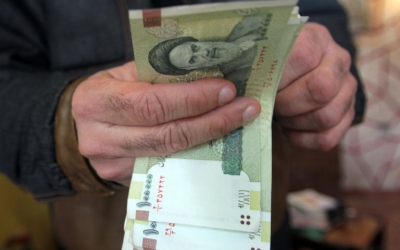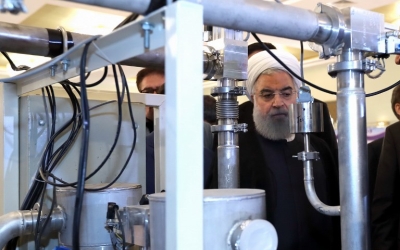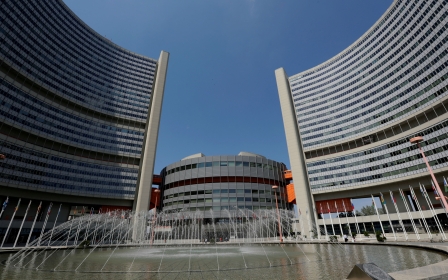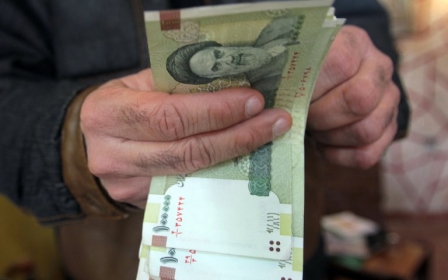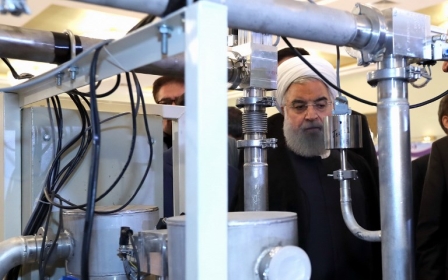Iran will soon exceed enriched uranium limit under nuclear pact: Report

Iran will soon exceed an enriched uranium limit under its nuclear deal, after remaining signatories to the pact fell short of Tehran's demands to be shielded from US sanctions, the semi-official Fars news agency said on Saturday, citing an "informed source".
Iran's envoy to a meeting of the remaining signatories to the 2015 nuclear accord said on Friday that European countries had offered too little at the last-ditch talks to persuade Tehran to back off from its plans to breach limits imposed by the deal, Reuters said.
"As the commission meeting in Vienna could not satisfy Iran's just demands ... Iran is determined to cut its commitments to the deal and the 300kg enriched uranium limit will be soon breached," the unidentified source said, according to Fars.
Tehran said it no longer feels bound by certain limits of the deal amid crippling sanctions re-imposed by the US after Washington unilaterally pulled out of the accord in May 2018, AFP reported.
New MEE newsletter: Jerusalem Dispatch
Sign up to get the latest insights and analysis on Israel-Palestine, alongside Turkey Unpacked and other MEE newsletters
A week after Washington abruptly called off air strikes on Iran, diplomats say Tehran is days away from exceeding the maximum amount of enriched uranium allowed under its 2015 nuclear deal with world powers, which Washington quit last year.
The countries that are still parties to the agreement - European powers Britain, Germany and France plus Russia and China - held urgent talks with Iranian officials on Friday in Vienna in hopes of persuading Tehran to hold off.
The Europeans say a breach of the agreement by Iran may escalate confrontation at a time when Tehran and Washington are at risk of a miscalculation that could trigger a war.
Iran's envoy, Deputy Foreign Minister Abbas Araqchi, said the talks were "a step forward, but still not enough and not meeting Iran's expectations".
Araqchi said another meeting of the parties to the treaty would be convened at ministerial level "very soon", possibly in the next few weeks, AFP said.
He added that it was ultimately up to his superiors in Tehran to decide whether to call off plans to exceed limits in the nuclear deal, but he did not believe the talks outcome was likely to change their minds.
"The decision to reduce our commitments has already been made and we will continue unless our expectations are met," he said. "I don't think the progress made today will be enough to stop our process but the decision will be made in Tehran."
The likelihood that Iran could exceed the deal's limits as soon as the next few days is the next looming worry for European leaders trying to keep confrontation between Washington and Tehran from spiralling out of control.
Despite abandoning the deal, Washington has demanded European countries ensure that Iran complies with it. Iran says it cannot do so unless the Europeans provide it with some way to receive the deal's promised economic benefits.
In particular, it wants its oil exports restored to the level of April 2018, before US President Donald Trump abandoned the deal and re-imposed sanctions.
French President Emmanuel Macron said this week that he would ask Trump to ease sanctions to allow negotiations to begin. But the plea seemed to have fallen on deaf ears, with Trump's Iran envoy saying on Friday that sanctions would remain in place to end Iranian oil exports altogether.
China, long a big importer of Iranian oil, said it rejected US sanctions, but Fu Cong, director general of the Department of Arms Control of the Chinese Foreign Ministry, would not be drawn out on whether Beijing planned to keep buying.
"We do not accept this so-called zero policy of the United States," Fu said. His statement came a day before Trump was to meet his Chinese counterpart Xi Jinping on the sidelines of a G20 summit in Japan in an attempt to resolve an escalating trade war.
So far, European proposals to protect Iran from the impact of US sanctions have failed, with Iran largely shunned in international oil markets and all major companies cancelling plans to invest there for fear of falling afoul of US rules.
After Friday's talks, Araqchi said he had been informed that INSTEX, a new barter mechanism set up by the Europeans to facilitate some trade with Iran, was now operational.
Britain, France and Germany have informed the EU that INSTEX "had been made operational ... and that the first transactions are being processed," the EU said in a statement.
Still, a European diplomat said that while the system was working on the European side and transactions had been identified, work on the Iranian end had yet to be completed.
Araqchi said the new mechanism would help only if it enables Iran to sell its oil. The Europeans say it is likely to be able to handle only small transactions for items such as medicine, already permitted under sanctions.
Diplomats who follow the work of UN inspectors told Reuters that their data suggested Iran had not breached the limit of enriched uranium on Thursday, but was on course to do so over the weekend.
The Times of Israel reported that Iran had recently quadrupled its production of low-enriched uranium, adding that Tehran said it was below the limit on Wednesday and there would be no new assessment until “after the weekend.” It is currently a holiday weekend in Iran.
Breaching the limit would be a symbolic move but would not put Iran significantly closer to building a nuclear weapon. The 300kg limit of uranium enriched to 3.67 percent is suitable for use in power plants but falls far short of the more than 90 percent enriched uranium needed for fissile material in a nuclear bomb, the Washington Post reported.
An Iranian official, speaking on condition of anonymity, had stressed on Thursday that even if both limits were surpassed, this could be reversed "within half an hour" if there was progress on boosting Iran's oil exports despite US sanctions.
The crisis between Iran and the United States that began with Trump's withdrawal from the pact has escalated in recent weeks after Washington sharply tightened its sanctions from the start of May to halt all Iranian oil exports.
The Trump administration argues that the 2015 agreement reached under his predecessor Barack Obama was too weak because many terms are temporary and it excludes non-nuclear issues including missiles and Iran's regional behaviour. Washington says the aim of sanctions is to force Tehran to renegotiate.
Tehran says there can be no talks as long as sanctions are in place and Washington is ignoring the deal it already struck.
The confrontation has taken on a military dimension in recent weeks, with Washington blaming Tehran for attacks on ships in the Gulf, which Iran denies. Iran shot down a US drone last week, saying it had entered its air space. Washington said the drone was in international skies, and Trump ordered, then aborted, retaliatory air strikes on Iranian targets.
Any move by Iran that violates the nuclear deal would put pressure on the Europeans to take sides.
Middle East Eye delivers independent and unrivalled coverage and analysis of the Middle East, North Africa and beyond. To learn more about republishing this content and the associated fees, please fill out this form. More about MEE can be found here.



